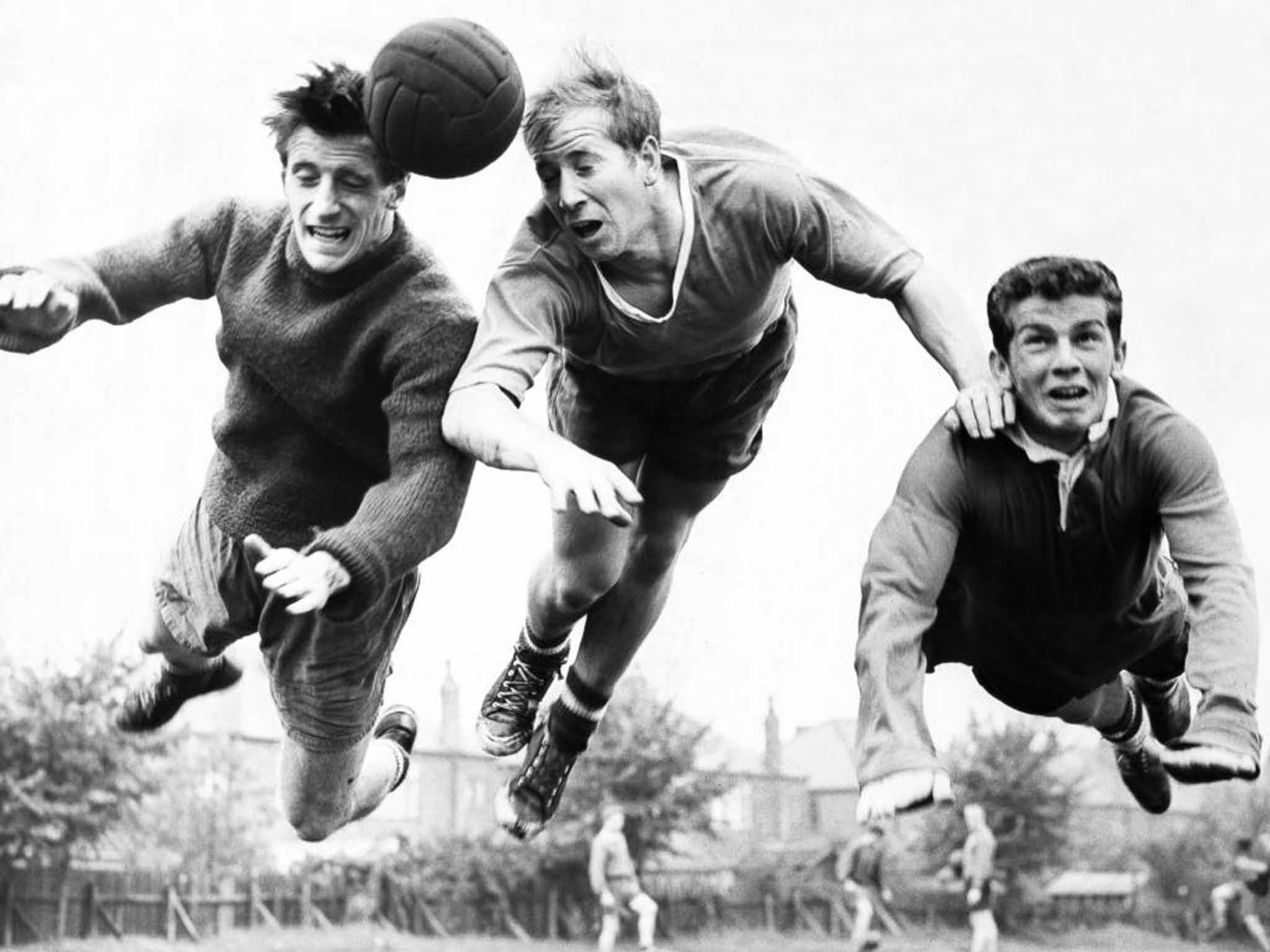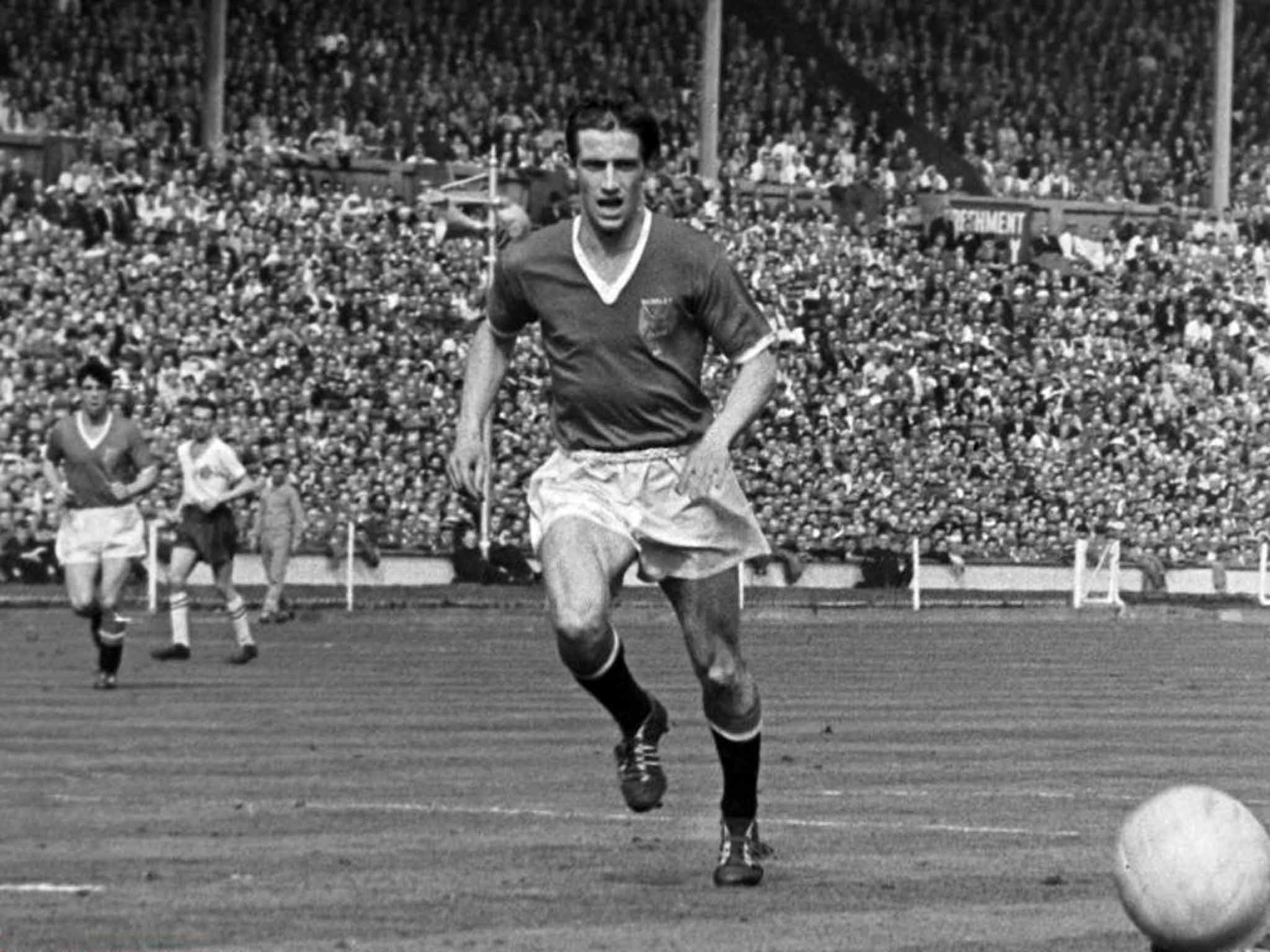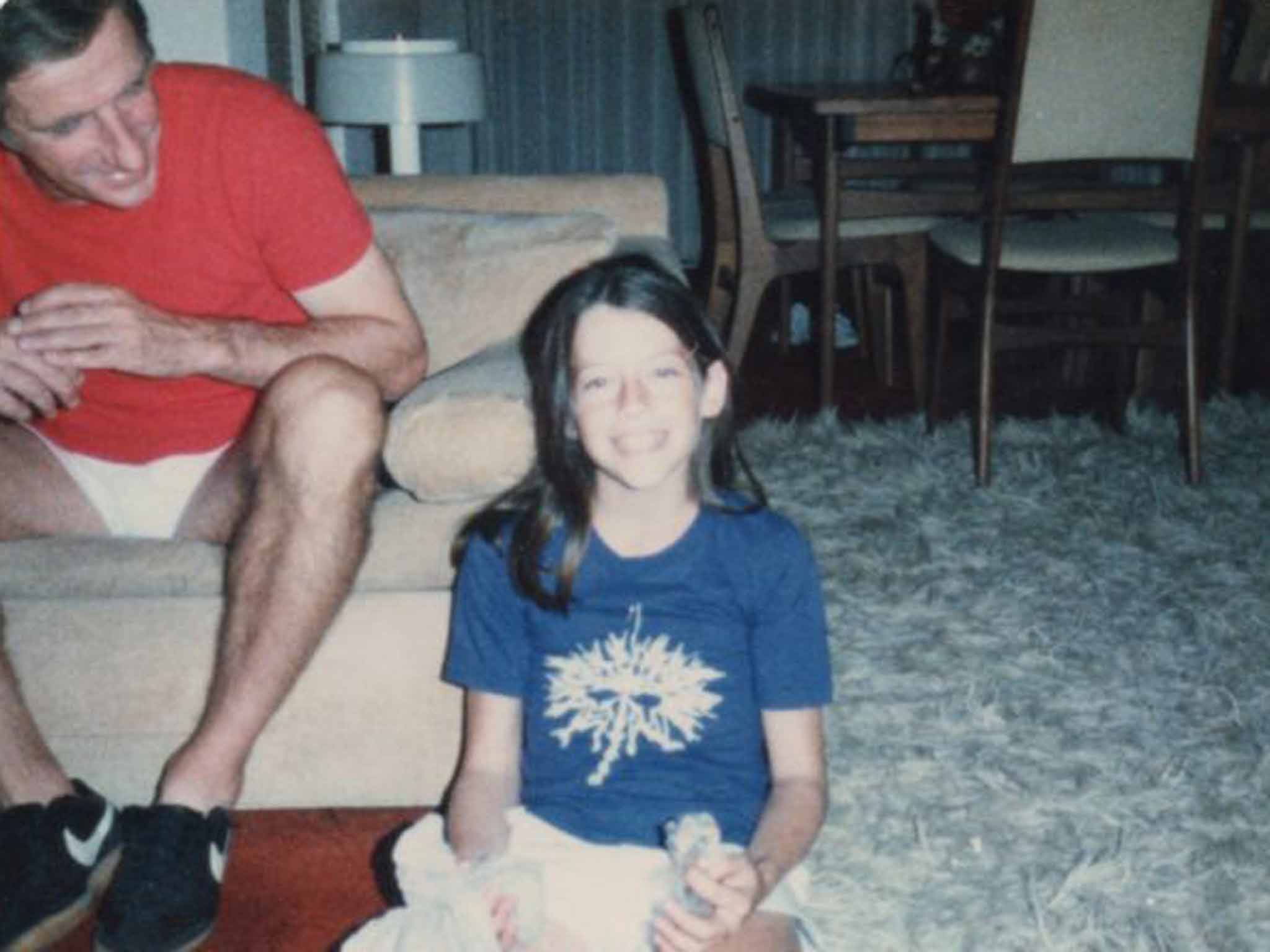Dennis Viollet, a Manchester footballing legend, is the hero of his daughter’s new film
'Dennis Viollet – a United Man' is his daughter Rachel's film about her father, who escaped death in the Munich air disaster of 1958 and became a record-breaking goalscorer for the club. But ahead of its premiere she reveals to Ian Herbert how the pain of survivor's guilt took its toll on him

Your support helps us to tell the story
From reproductive rights to climate change to Big Tech, The Independent is on the ground when the story is developing. Whether it's investigating the financials of Elon Musk's pro-Trump PAC or producing our latest documentary, 'The A Word', which shines a light on the American women fighting for reproductive rights, we know how important it is to parse out the facts from the messaging.
At such a critical moment in US history, we need reporters on the ground. Your donation allows us to keep sending journalists to speak to both sides of the story.
The Independent is trusted by Americans across the entire political spectrum. And unlike many other quality news outlets, we choose not to lock Americans out of our reporting and analysis with paywalls. We believe quality journalism should be available to everyone, paid for by those who can afford it.
Your support makes all the difference.It is for the small details of a February day in 1958 that Dennis Viollet has perhaps been best remembered. He was in a young Manchester United squad that also featured Bobby Charlton and the two of were sitting beside each other on an airliner, basking in the afterglow of success against a Belgrade team, picking over the events of what had been a difficult second half, before it put down for a refuel in Germany.
“A wonderful state of mind,” is what Charlton remembered the two of them having that day but the bonhomie and sense of invincibility were eviscerated when the Elizabethan-class Airspeed Ambassador jet crashed in the runway slush, while attempting take-off from Munich for the last leg home to Manchester. It was the deafening silence in the cabin in the seconds before the crash that Charlton later remembered most. “Neither Dennis nor I had uttered a word since we had started on the take-off.” And the mental image of Viollet sitting beside him in the smoke and grit and cold air of the runway, when their seats had been catapulted from the plane.
They recovered. It was testament to Viollet's capacity to put the Munich air disaster behind him that he scored more goals the following season than anyone who has worn the red jersey of United, before or since. But a footballer's period of indomitability is all too brief and it is the story of what happened when Viollet's had run its course that provides such a source of fascination in a film about him, written and directed by his British-born American daughter, Rachel, who followed her father into sport and became Britain's top woman player before her career as a film-maker. The work, Dennis Viollet – a United Man launches the Manchester International Film Festival tomorrow.
Denis Law, one of many legendary players from whom the film-maker's subtly persistent interviewing yields such excellent testimony, reflects that he did not earn in a lifetime what a United player would now collect in a week. Those young men, who had lost eight of their team-mates in a crash that claimed 23 lives, would return to supplement their income by mowing grass for the local corporation, painting houses and even digging graves in the post-season. “Wall painting, not a painter, painter,” says Law, grinning and gesturing. It was a different world that they occupied.
One minute Viollet was a celebrity presence in Manchester – suave, debonair, an impeccably turned out presence at Manchester's Continental club until the very small hours – and the next he was surprised to be receiving a telephone call from the Stoke City manager, expressing pleasure that the two of them would be working together. No one at United had thought to tell him he had been sold. He would go on to suffer the indignity of scratching around for money, as an abortive attempt at British football management brought the sack in 1971 from Crewe Alexandra.
Yet a resolve to live to the full that life that had been denied to those team-mates on the Munich runway meant that the least appreciated but arguably most significant chapter of his relationship with football came when his playing days were done. A return in 1973 to the United States – where a brief playing career had ended ignominiously when the league he'd played in folded – brought a coaching career in Washington DC, New England and Jacksonville, Florida, for which he must be credited with a huge role in helping the game to take hold on the side of the Atlantic.
This part of the Viollet story has always been confined to the biographical margins. It elicited the most cursory mention in The Independent's obituary, when he died in 1999. “Viollet went on to achieve further coaching success in the States, settling in Jacksonville, Florida,” was the only reference. Yet his daughter's attention to this period creates an absorbing chronicle of his part in the struggle of “soccer” to take hold. There's a delicious 1970s retro feel to what flows.
The North American Soccer League (NASL), which folded in 1984 after a 16-year existence, was a refuge of all the faded greats – Pelé, Franz Beckenbauer, George Best – and some obscure footage unearthed by the film reveals what an uneasy fit it was for some from this side of the Atlantic, straddling the past and the future. We see Danny Blanchflower, arguably the greatest player Tottenham Hotspur have known, looking distinctly uncomfortable in front of the camera, where he was asked to add to the razzmatazz commentary on one NASL game. We see Best, far more at home there; briefly dazzling before his own creative light was extinguished.

Viollet was the one with the foresight to realise that the development of the sport in the US must be something more organic than shipping in celebrities to dazzle the nation. At the Washington Diplomats, the first team he coached, he always ensued there was a substantially greater quota of home-grown American players than elsewhere. That creed also applied at the New England Tea Men, where with Noel Cantwell, his former Manchester United teammate, he found perhaps a greater camaraderie than he had ever known in life.

Watch Apple TV+ free for 7 days
New subscribers only. £8.99/mo. after free trial. Plan auto-renews until cancelled

Watch Apple TV+ free for 7 days
New subscribers only. £8.99/mo. after free trial. Plan auto-renews until cancelled
That there should be such surprisingly little testimony from Viollet himself in the film carries an unspeakable sadness. Had the plane not crashed that day and the insuperable United side gone on to win the European Cup that year, he would have surely attained the legendary status that Best, and Charlton went on to acquire when they lifted the trophy, 10 years later. “A lot of it comes down to the fact that he was playing in the pre-TV era,” his daughter says. “Had he set the goalscoring record 10 years later it would have been different.” Viollet is tied at fifth on United's all-time scoring list. His average of a goal every 1.6 appearances is better than Charlton, Denis Law, Best and Rooney, no less.

But the crash did imbue him with a resolve to seize the life he had been presented with, his daughter says. The film charts his integral role in the United players' fight for an abolition of the £20 maximum wage. Ms Viollet saw the same characteristics when a young black child was not being treated well one day, on the playing fields of Jacksonville, at a time when there liberalism was not a universally held concept. By all accounts, he stood up for the child in no uncertain terms.
In 1997, Viollet was overwhelmed to be invited to Munich, along with his old United teammates Charlton, Jackie Blanchflower, Ray Wood, Kenny Morgans and Albert Scanlon, to watch the European Cup final between Borussia Dortmund and Juventus. He was delighted to be in the city, which had helped to nurse him back to life, but he and those with him found that the scars of 1958 were still there. Charlton is one of those who has always said that the pain of Munich, its meaning and the effect it had on its victims could never be quite quantified. He has also always insisted there is a guilt attached to being among those who survived.

There was certainly no sense back then in 1958 that these players might be helped to deal with the grief that they had to carry around. “They had just come through World War Two,” says Ms Viollet. “The attitude was 'get on with this'. But it took its toll and what they say about a survivor's guilt certainly applies. I remember one day dad was exceptionally quiet and I asked my mum what was wrong.” It was February 6: the anniversary of the crash.“
It was within a two weeks of his return from the German capital that Viollet became ill. In Rochester, New York, with the Jacksonville Cyclones, his players became concerned for him and he was subsequently diagnosed with the most aggressive known type of brain tumour. Emergency surgery brought complications that left him partially paralysed. His relationship with the game to which brought so much was over. “Dreams and ambitions go together and I was very lucky,” Viollet once said. “I accomplished a lot of my ambitions.”
'Dennis Viollet – a United Man' premieres March 3 , 7.30pm at HOME, Manchester. Part of the Manchester International Film Festival (http://www.maniff.com)
Join our commenting forum
Join thought-provoking conversations, follow other Independent readers and see their replies
Comments